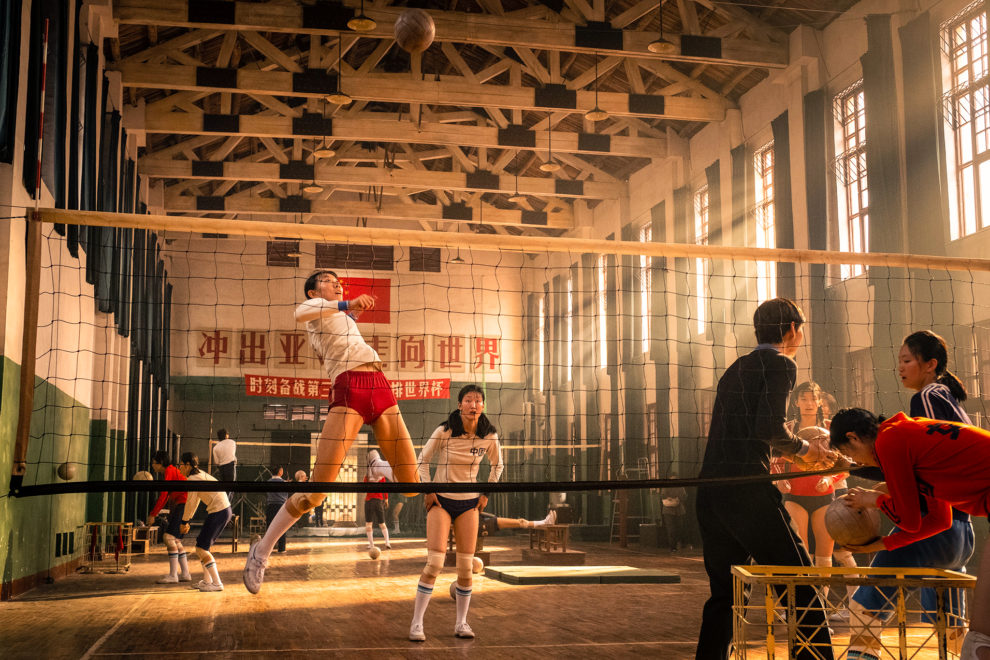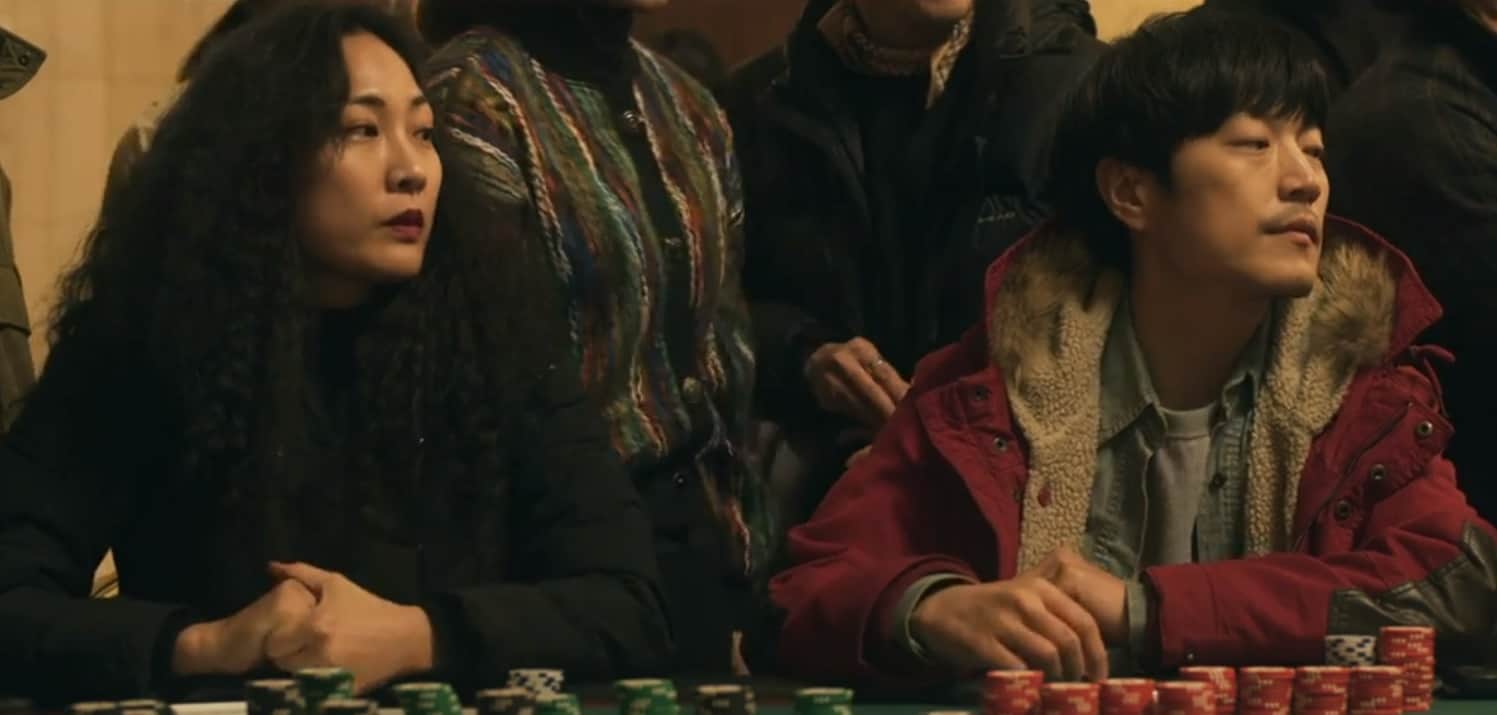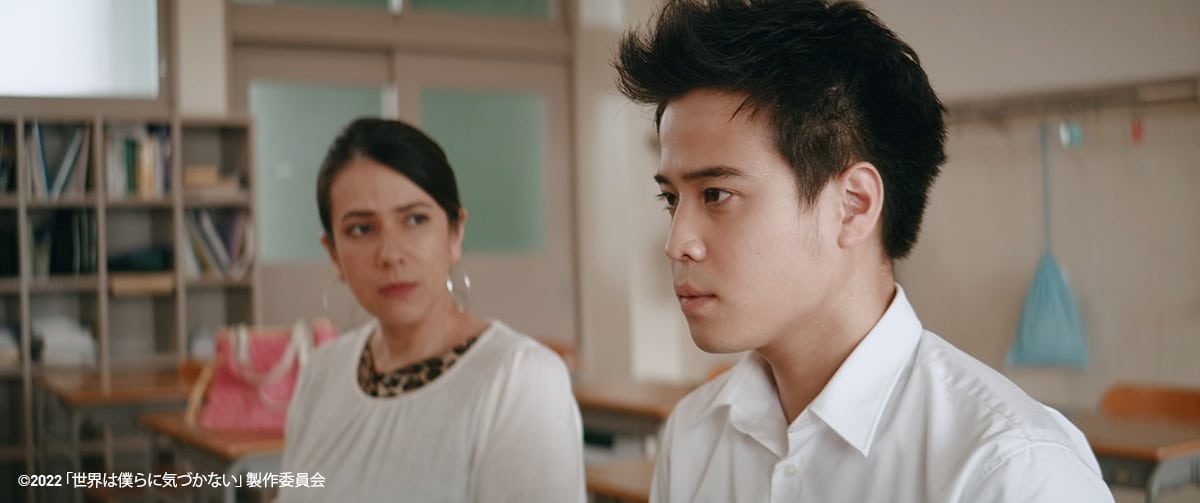What could be better than one underdog success story? Multiple underdog success stories, and this is the dogma Peter Chan used exactly in order to present the history of the Chinese volleyball team through four decades, by focusing on one of its most iconic individuals, Lang Ping.
Buy This Title
by clicking on the image below
Check also this interview
The story revolves around three key moments in the history of the team, namely the matches against Japan at the World Cup in 1981, against USA at the Beijing Olympics in 2008, and against Brazil at the 2016 Rio Olympics. In that fashion, the narrative unfolds in three arcs. The first one focuses on Lang Ping, and how, under the borderline-exploitative but also tough love training by Yuan Weimin, she came to be the star of the team, particularly due to her strong will and dedication. Her path as a coach, firstly in the US team and then the Chinese team concludes her arc. The second one focuses on the teams themselves, and how their training changed through the years, with the first one focusing almost exclusively on hard training, while the last, through Lang Ping's unusual for the country tactics, on the psychology of the players just as much. The last arc focuses on the country itself and how it changed through the decades, with the mentality of the people and the tactics of the government being both highlighted, through a somewhat jingoistic but not intently so approach. On a last axis, some focus is also placed on Cheng Zonghe and the role he played in the team, from his unwilling participation in the first arc to his full dedication by the last.
Peter Chan aimed for a combination of both entertainment and realism, with the result being quite good. This approach is chiefly mirrored in the cast, which consists of ten out of the twelve Olympic Gold medalists from the 2016 Rio Olympics squad appearing as themselves. As Wei Qiuyue was pregnant at the time of filming, Yao Di (who was cut before the Olympics) was cast to act as Wei. (Despite Wei's absence, her husband Yuan Lingxi, who has been an assistant coach on the team, appears in the film as himself.) Furthermore, Lang Ping, the player, is played by her real-life daughter Lydia Bai, a former Stanford Cardinal player. On the other hand, older Lang Ping is played by Gong Li, whose appearance has very little to do with the actual woman, while Lydia Bai herself is played by Audrey Hui (Joan Chen's daughter) in the film, in an obvious effort for some star quality. The combination, however, works quite well, with Gong Li in particular shining in the role, in a rather measured performance that also benefits the most by her evident charisma.
Where the movie truly thrives however, are the actual matches. The inclusion of actual players, the combination of actual game speed with slow motion, the different angles, the cheers of the crowd after each point (both those in the stadiums and the ones watching from their and the reactions of the players and coaches are a true wonder to look at, essentially caring the movie from beginning to end of its 145 minutes. In that regard, Peter Chan's direction, Yu Jing-Pin and Xiaoshi Zhao cinematography, and Zhang Yibo's editing find their apogee in these scenes, which thankfully, are quite numerous.
On the other hand, the approach Chan implements towards the events lacks criticism, essentially presenting most of them as stories of triumph, while some key moments are comfortably missing, as in Lang's first effort in coaching the Chinese team. The analysis of the characters is also without depth, while the effort at nostalgia, rather palpable, with the return to the initial gym being the highlight of this approach.
None of the aforementioned issues, however, fault that quality of the film significantly, which, like the sports movies of the 80s aims exclusively at entertainment by creating heroes under any circumstance, while the matches themselves are so impressive, that are probably the one thing that will remain in the memory of any viewer after finishing the film.
















